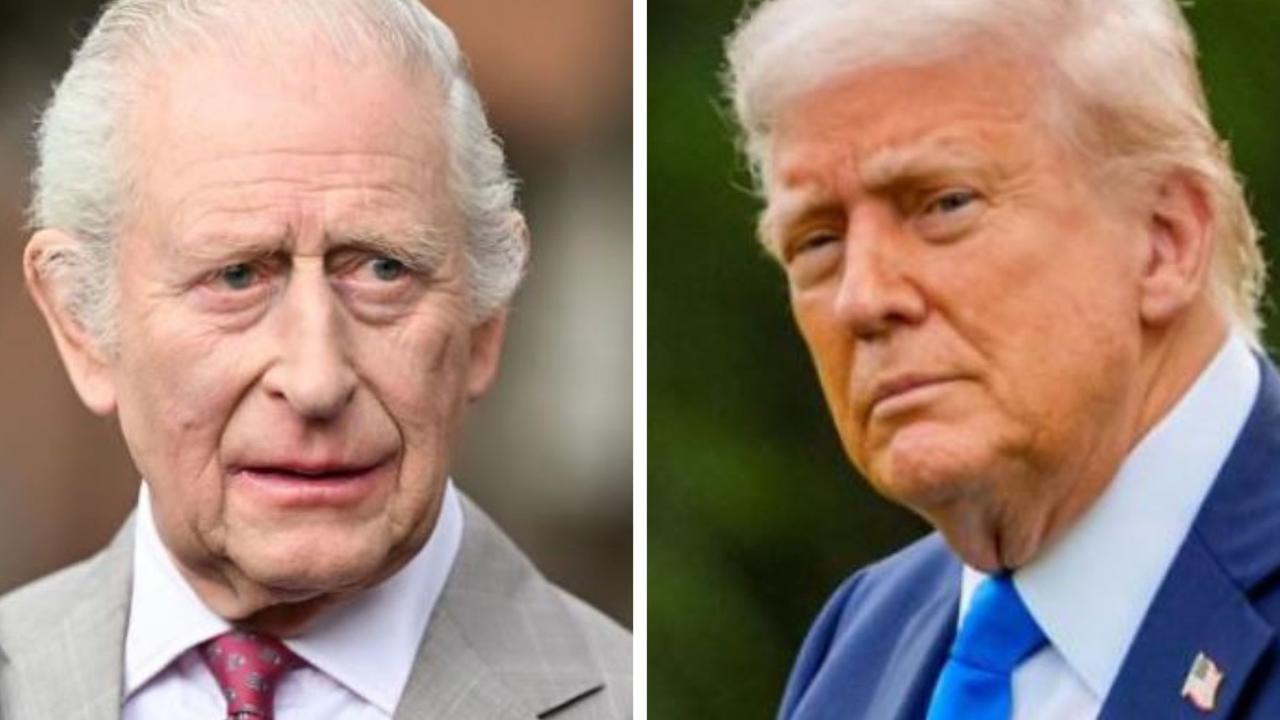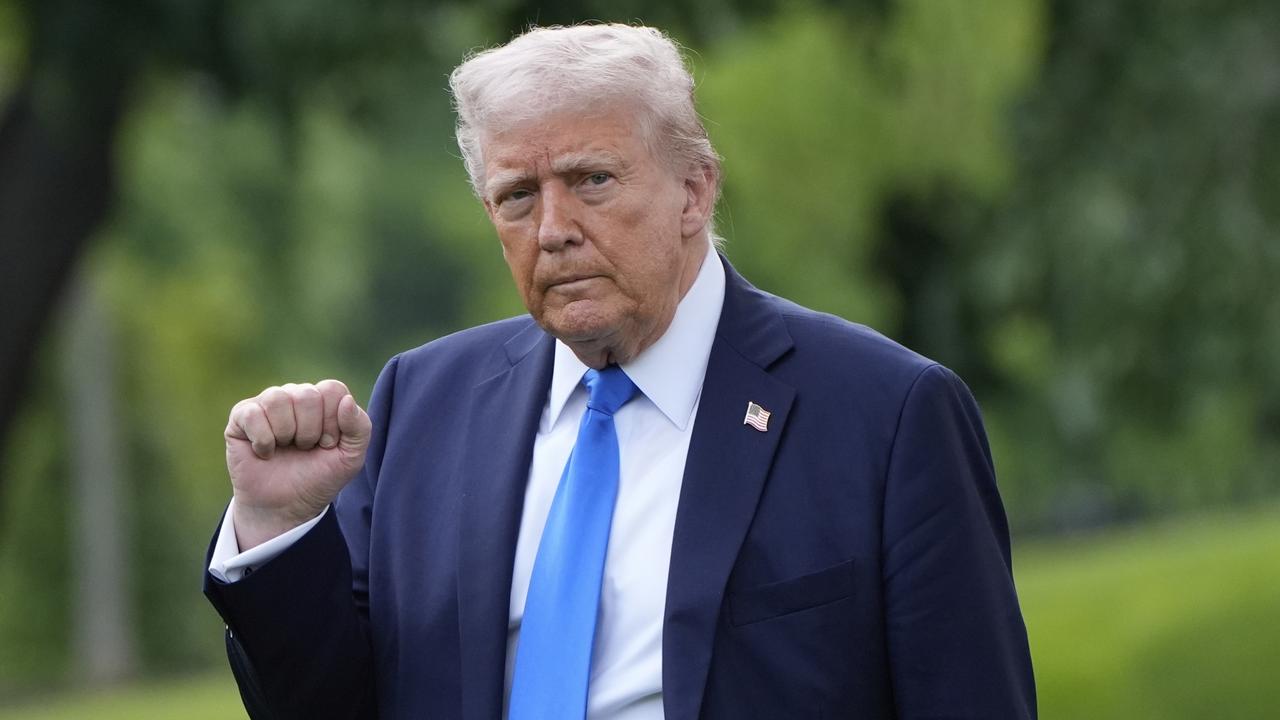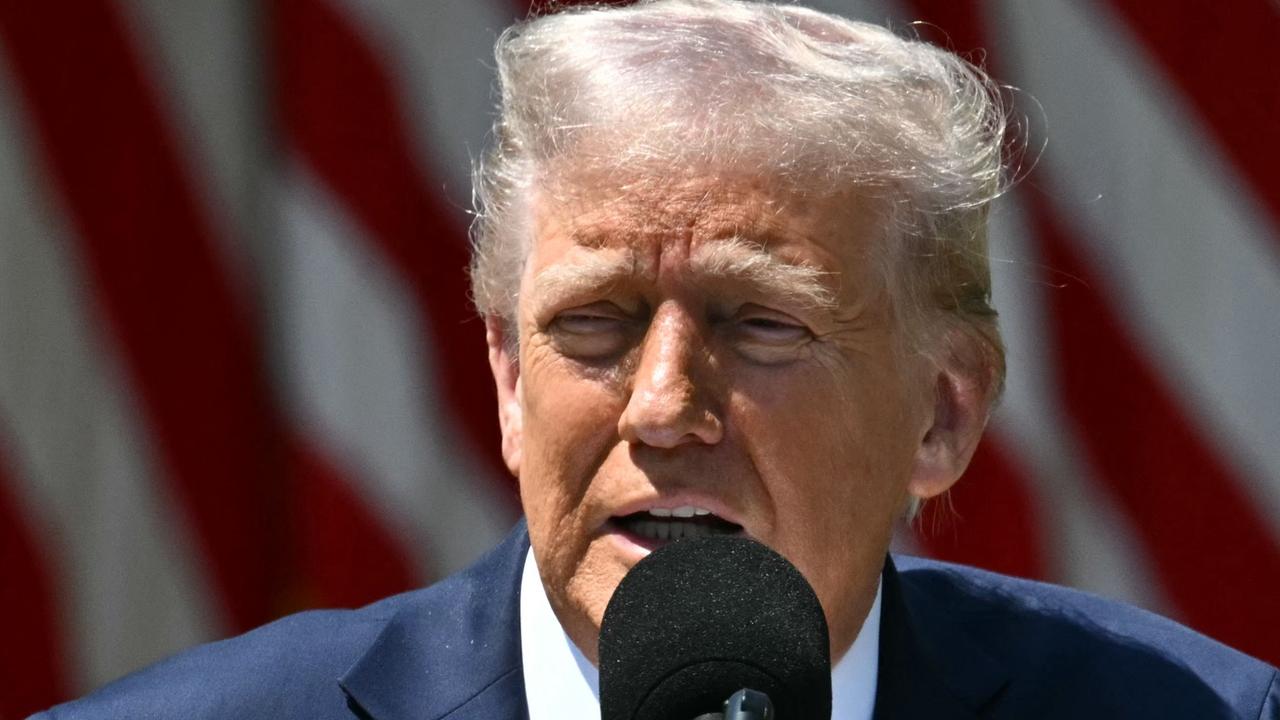Experts warn of ‘looming’ problem if Donald Trump wins election in November
Donald Trump has made a chilling promise as the US election looms – and experts warn it could be an alarming sign of things to come.

Donald Trump has promised that his second term as President of the United States would be a “bloody” one.
“Ya know, getting them out will be a bloody story … Should have never been allowed to come into our country,” Trump told a weekend campaign rally in Mosinee, Wisconsin.
The comments were made regarding his plans to remove undocumented immigrants from the country. And experts have warned it could be a chilling sign of things to come.
“Trump uses the word ‘bloody’ to describe what he plans to do to immigrants,” Mark Jacob, the ex-editor of the Chicago Tribune and Sun-Times said in response.
“Wake up to the looming atrocity. Volunteer. Donate. Vote. Stop Donald Trump from ruining our country.”
As his 2024 election campaign struggles to adapt to the sudden withdrawal of sitting President Joe Biden in favour of Vice President Kamala Harris, election watchers are noting Trump is ramping up his violent rhetoric.
That’s despite being lightly wounded in an attempted assassination attempt in July.
“He often fantasises about unleashing state violence against groups and people he dislikes,” observes former George W Bush speechwriter David Frum.
Frum adds this is “a revelation about how he feels – and a troubling reminder of the sources of his appeal.”
That, says University of Sydney foreign policy researcher David Smith, is the point.
“He is counting on his base to win the election.”
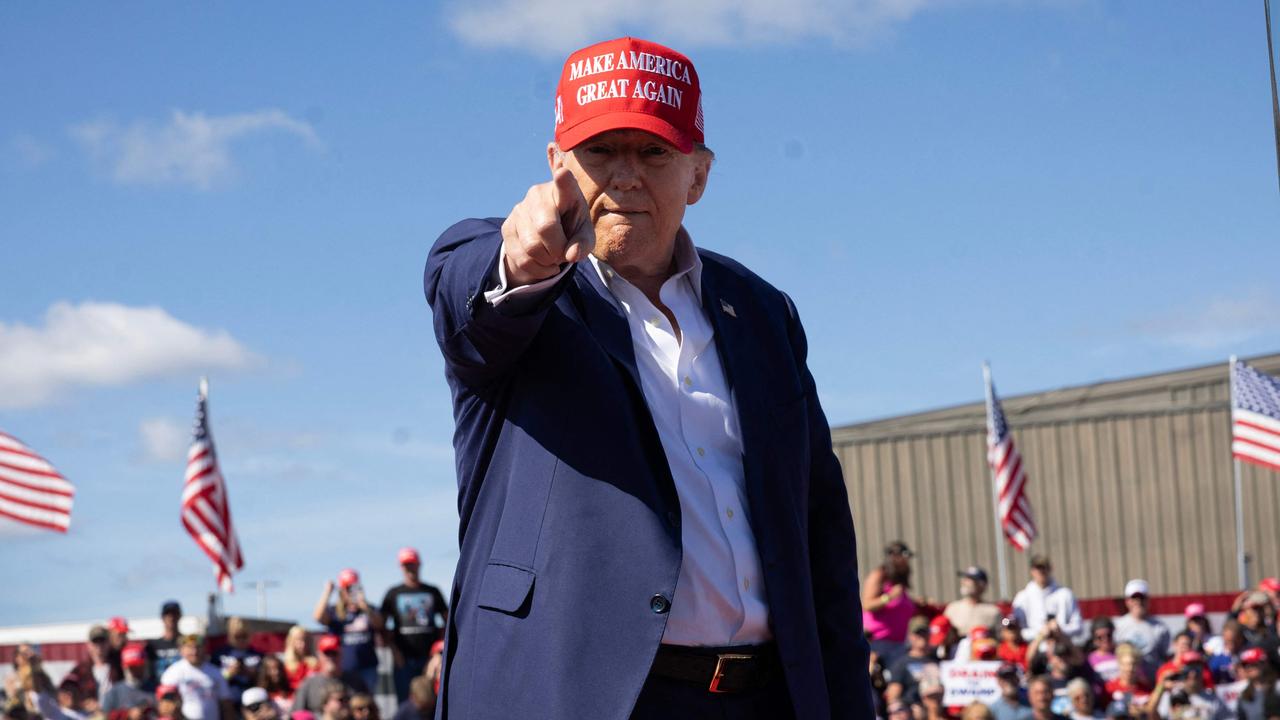
But University of California Professor Barbara Walter says this polarising approach is sending the United States down a precipice towards civil unrest and perhaps even civil war.
“One of the reasons why sceptics have said this can’t happen here again is because the model they’re using is the first (US) Civil War,” Prof Walter tells Foreign Policy.
“And that is true. That is never going to happen again here.
“Something different, however, could easily happen here.”
‘Every right to do it’
Last week, Trump went close to admitting he had deliberately attempted to interfere with the outcome of the 2020 presidential election.
Fox News’ Mark Levin, complaining about the multitude of criminal court cases against Trump, lamented: “This election interference never ends, does it?”
The former president’s response took an unexpected turn.
“You get indicted for interfering with a presidential election – where you have every right to do it – you get indicted, and your poll numbers go up,” he said.
Trump faces four renewed federal charges for attempting to overthrow the November 2020 election result.
The US Supreme Court, still exhibiting the Republican majority Trump gave it, ruled in July that presidents have immunity from prosecution for official acts.
Prosecutors have reissued the charges, stressing that Trump was acting as a private citizen candidate for the role of president and that a president can’t use their powers to campaign.
The Harris campaign team immediately seized on Trump’s words.
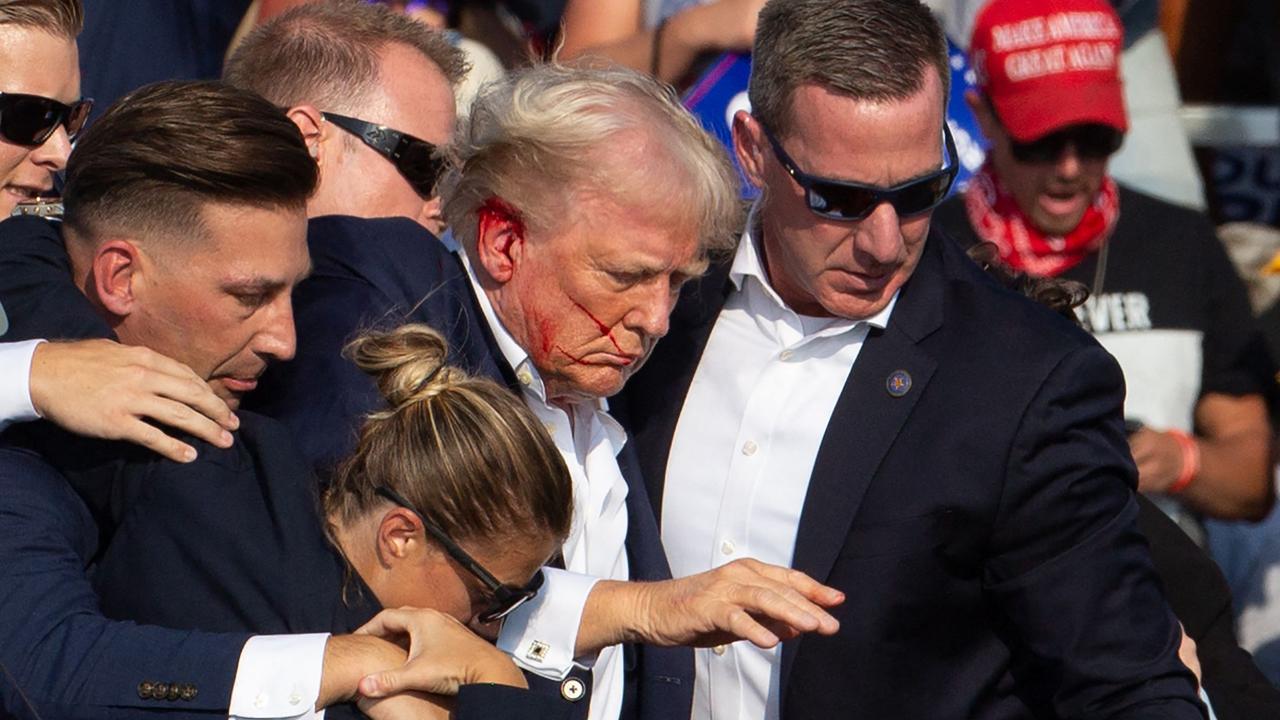
“Everything Donald Trump has promised on the campaign trail – from ‘terminating’ the Constitution, to imprisoning his political opponents and promising to rule as a dictator on ‘day one’ – makes it clear that he believes he is above the law. Now, Trump is claiming he had ‘every right’ to interfere in the 2020 election. He did not.”
‘You don’t have to vote again’
“Christians, get out and vote, just this time. You won’t have to do it any more. …” Trump told an audience in July.
“Four more years, you know what? It’ll be fixed, it’ll be fine. You won’t have to vote any more, my beautiful Christians,” he said.
Trump swept to power in 2016 after inspiring the vast – and diverse – US evangelical voter base.
It’s the kind of fervour the one-term president finds empowering, says Smith.
“In the past, Trump has enjoyed the way some Christians have likened him to righteous biblical rulers such as King Cyrus, King David, and Queen Esther,” the associate professor writes.
“Many of his supporters took his “miraculous” survival of a horrific assassination attempt as an unmistakeable sign that God is protecting him. And ever since the shooting, Trump also seems to see himself in increasingly religious terms.”
Trump makes big promises to his religious supporters.
He’s delivered on some of them.
Especially by appointing the Supreme Court judges who overturned the longstanding Roe V Wade abortion rights ruling.
“Either explicitly or through hints, Trump has repeatedly promised Christians far bigger victories than incremental policy gains or temporary reversals of fortune in the culture wars,” states Smith.
“Trump instead talks about winning the ‘final battle’, which reminds many Christians of the prophesied victory of God over Satan.”

But one of his personally appointed former White House press secretaries spoke out against her former boss at the recent Democratic National Convention.
“He used to tell me: ‘It doesn’t matter what you say’, Stephanie Grisham said. Say it enough, and people will believe you.’”
Trump may have accidentally spilt the beans about his true motives in June while repeating his “final battle” claim.
“They go to church every Sunday, but they don’t vote. In four years, you don’t have to vote. Okay? In four years, don’t vote. I don’t care.”
‘Dictator on Day One’
During a public address in Iowa last December, Trump was asked by Fox News’s Sean Hannity: “You are promising America tonight, you would never abuse power as retribution against anybody?”
“Except for day one,” Trump replied.
“He says, ‘You’re not going to be a dictator, are you?’” Trump quipped in December last year. “I said: ‘No, no, no, other than day one. We’re closing the border, and we’re drilling, drilling, drilling. After that, I’m not a dictator’.”
But whether or not US presidents are subject to the same Constitution and federal laws as their citizens has become an ongoing debate under Trump’s candidacy.
Essentially, was the US Republic founded under democratic or authoritarian principles?
Whatever the case, Trump believes his control should be absolute.
In his final months as president in 2020, he issued an executive order known as “Schedule F”. This gave him the power to arbitrarily declare 50,000 public servants political appointees.
That would have given him unchallenged power to remove critics, stack key positions with supporters and use lucrative jobs as rewards.
“Some suggest that such an increase in political appointments could damage government accountability and capacity, compromise a nonpartisan bureaucracy, and precipitate a return to the US political spoils system of a century ago,” United States Studies Centre researcher Samuel Garrett writes for the Lowy Institute.
If he achieves a second term, he will have to unravel hurdles the Biden administration has since put in place.
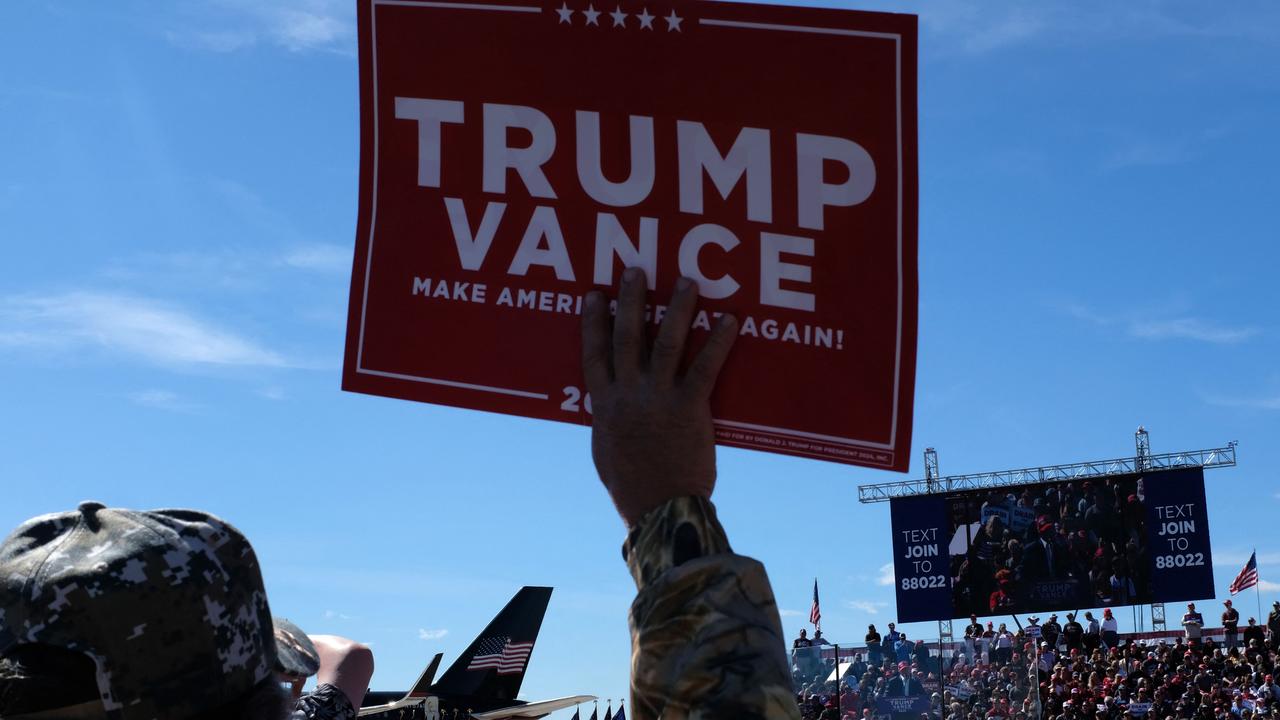
“The rule specifies that career protections cannot be involuntarily removed from federal employees, narrowly defines policy-relevant positions, and creates an appeals process for employees whose positions are involuntarily reclassified,” explains Garrett.
‘Bloody story’
Trump repeatedly suggested violence was a valid political tool while in office between January 20, 2017 and January 20, 2021.
In a July 17 speech in Long Island, New York, he reportedly told police: “Please, don’t be too nice”.
In October 2018, he praised the man who would become Montana’s governor for attacking a journalist: “Any guy that can do a body slam, he’s my type!”
In May 2020, he responded to demonstrations against the police killing of George Floyd by stating: “When the looting starts, the shooting starts”. Former Trump administration Defence Secretary Mark Esper said the controversial candidate also asked: “Can’t you just shoot them? Just shoot them in the legs or something?”
In June 2020, he threatened to order the US military to suppress nationwide Black Lives Matter protests: “If a city or state refuses to take the actions necessary to defend the life and property of their residents, then I will deploy the United States military and quickly solve the problem for them”.
In September 2020, he praised police for shooting anti-fascist extremist Michael Reinoehl after he killed a far-right activist: “That’s the way it has to be. There has to be retribution”.
Also that month, he told the white supremacist group Proud Boys to “stand back and stand by” for the outcome of the following month’s elections.
In January 2021, on Capitol Hill, Washington DC, he told a rally the election had been “stolen”.
“We’re going to walk down to the Capitol … you’ll never take back our country with weakness,” he said.
Now, he insists he would be well within his rights as Commander in Chief of the US armed forces to deploy troops in US streets to hunt down illegal immigrants.
He insists the Posse Comitatus Act, which forbids the use of the military against civilians, doesn’t apply.
“Well, these aren’t civilians. These are people that aren’t legally in our country,” he said in a recent Time interview. (That’s despite the US Constitution stipulating US laws apply to all within its borders – citizens or not).
Signs and portents
When asked during a recent interview if he would accept the November 2024 election results, Trump replied he would need to “see that we had a fair and free election”.
“And certainly if, for some reason, I lose — and I think if I lose, this country will go into a tailspin, the likes of which it’s never seen before, the likes of 1929,” he added.
It’s just the latest incarnation in a long litany of responses to the same question since January 20, 2022.
Trump still maintains that election was “stolen” despite failing to produce any evidence.
But the damage these unsubstantiated claims have done to US society runs deep, says Prof Walter.
She says she was once part of a CIA study to measure the influences that produce severe political instability. The idea was to predict what countries were about to experience civil war with two years’ warning.
The results were unexpected.
“Essentially, only two factors mattered. And it wasn’t the two factors that the experts had expected,” she adds.
The first was the devolution of a democratic system into near anarchy.
And the second was for involved activists to mobilise supporters based on race and religion – not political ideology.
And that, says University of Sydney Associate Professor David Smith, is Trump’s tried and tested political tactic.
“His selection of JD Vance as his running mate was not calculated to win over groups with whom Trump has struggled in recent years, particularly suburban women,” Smith writes.
“Rather, it came at the height of the Trump team’s conviction that they were destined to win anyway.
“For all the talk of Vance being a choice for the future, Trump has little interest in the future beyond his own second term.”
But Trump’s “bloody” rhetoric will echo for years to come, says Walter.
“So here in the United States, you have violent extremist groups. Every country has them, and they’re going to be really unhappy if their preferred candidate loses. Some of them will turn to violence,” Prof Walter says.
“In fact, the US Civil War was highly, highly unusual.
“Most civil wars look like insurgencies and guerrilla warfare and tend not to be fought by large armies. They are fought by small militias or paramilitary groups.”
Jamie Seidel is a freelance writer | @JamieSeidel




